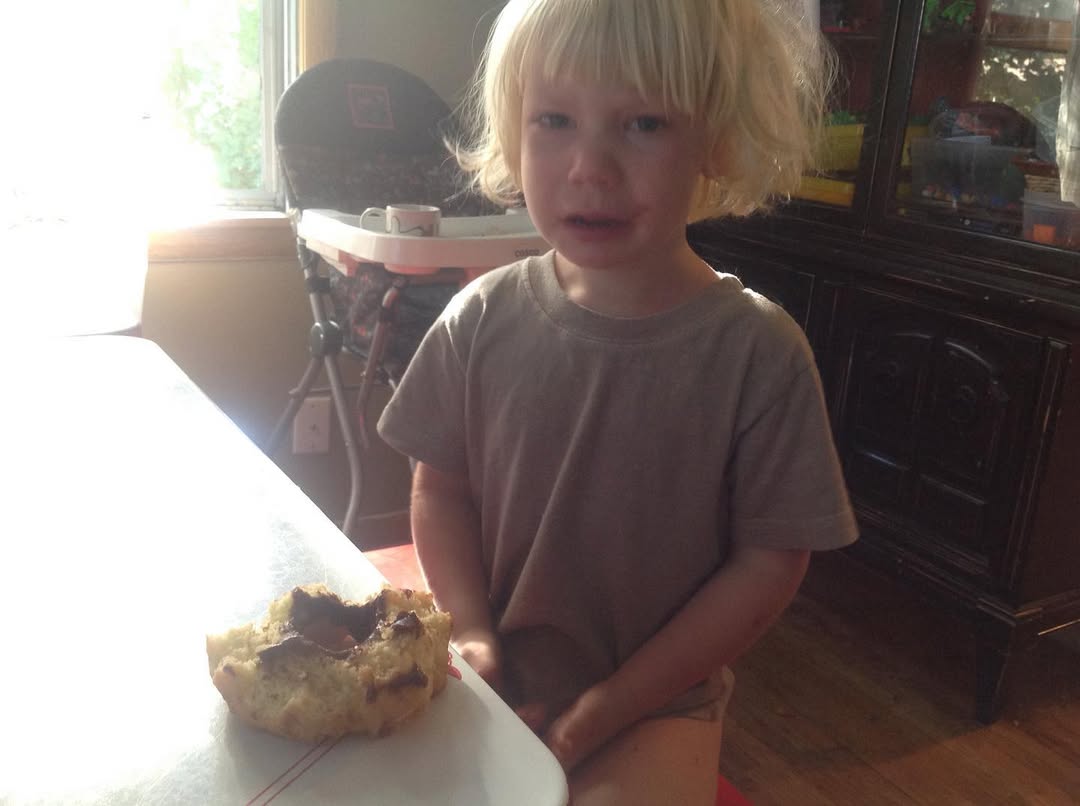Parenting is one of the most challenging yet rewarding roles in life. Every parent wants to raise happy, healthy, and well-adjusted children, but the journey is often fraught with uncertainties and mistakes. While there is no perfect formula for parenting, certain behaviors and patterns can have a detrimental impact on a child’s emotional, psychological, and social development. Recognizing these signs is crucial for parents who want to foster a nurturing and supportive environment for their children. This article explores 40 signs of bad parenting, offering detailed descriptions to help parents reflect on their actions and make positive changes.
It’s important to note that no parent is immune to making mistakes, and occasional missteps don’t necessarily equate to bad parenting. However, consistent patterns of harmful behavior can leave lasting scars on a child’s well-being. By identifying these signs, parents can take proactive steps to improve their parenting style and strengthen their relationship with their children. Let’s delve into the 40 signs of bad parenting, examining each one in detail to understand its potential impact on a child’s life.
Red Flags of Bad Parenting Every Parent Should Recognize
Recognizing bad parenting red flags is crucial for raising happy, healthy kids. From neglect to poor communication, these warning signs can impact a child’s development. Learn to identify and correct them early.
- Neglecting Emotional Needs
Children rely on their parents for emotional support and validation. When parents dismiss or ignore their child’s feelings, it can lead to feelings of insecurity and low self-worth. Over time, this neglect can manifest as difficulty in forming healthy relationships, emotional withdrawal, or even mental health issues like anxiety and depression. Parents must create a safe space where children feel comfortable expressing their emotions without fear of judgment or rejection.Credit @reasonsmysoncry1 - Overly Critical Behavior
Constant criticism can be incredibly damaging to a child’s self-esteem. When parents focus on their child’s mistakes or shortcomings rather than their efforts and achievements, it can create a fear of failure and a reluctance to try new things. This behavior can also lead to perfectionism, where children feel they must meet impossibly high standards to gain approval. Instead, parents should offer constructive feedback and celebrate their child’s progress.
- Lack of Boundaries
Children need clear boundaries to understand what is expected of them and to feel secure in their environment. Without these boundaries, they may struggle with self-discipline and respect for authority. A lack of structure can also lead to behavioral issues, as children test limits to see how far they can go. Setting consistent and age-appropriate rules helps children develop a sense of responsibility and accountability.
- Overindulgence
While it’s natural for parents to want to make their children happy, giving in to every demand can have negative consequences. Overindulgence can lead to entitlement, where children expect to get what they want without effort. It also prevents them from learning important life skills like patience, gratitude, and the value of hard work. Parents should strive to strike a balance between meeting their child’s needs and teaching them the importance of earning rewards.
- Inconsistent Discipline
Inconsistency in enforcing rules or consequences can confuse children and undermine the effectiveness of discipline. When parents are unpredictable in their responses to behavior, children may struggle to understand what is expected of them. This inconsistency can also lead to manipulation, as children learn to test boundaries to see what they can get away with. Clear and consistent discipline helps children learn right from wrong and develop self-control.
- Using Fear as a Control Tool
Threatening or intimidating a child to gain compliance can create a climate of fear and anxiety. This approach may yield short-term results, but it erodes trust and damages the parent-child relationship. Children who grow up in fear may become overly compliant or, conversely, rebellious as they seek to assert their independence. Positive reinforcement and open communication are far more effective in encouraging good behavior. - Ignoring a Child’s Achievements
Failing to acknowledge or celebrate a child’s accomplishments can make them feel undervalued and unmotivated. Children thrive on recognition and encouragement, which boost their confidence and drive to succeed. When parents overlook their achievements, children may feel that their efforts are meaningless, leading to a lack of motivation and a diminished sense of self-worth. Celebrating even small victories can have a profound impact on a child’s development.Credit @kidsinthegameny - Comparing Children to Others
Comparing a child to their siblings, peers, or even idealized standards can foster resentment, jealousy, and a sense of inadequacy. Each child is unique, with their own strengths and weaknesses. When parents focus on comparisons, it can create a competitive environment that undermines sibling relationships and self-esteem. Instead, parents should celebrate their child’s individuality and encourage them to strive for personal growth. - Overprotectiveness
While it’s natural to want to protect children from harm, being overly protective can hinder their ability to develop resilience and independence. Shielding children from all challenges or risks prevents them from learning how to navigate difficulties and solve problems on their own. Over time, this can lead to dependency and a lack of confidence in their abilities. Parents should aim to provide guidance and support while allowing children to experience and learn from their mistakes. - Neglecting Physical Needs
Providing for a child’s physical needs, such as proper nutrition, healthcare, and hygiene, is a fundamental aspect of parenting. Neglecting these needs can have serious long-term effects on a child’s physical and mental health. Poor nutrition, for example, can lead to developmental delays and chronic health issues, while inadequate healthcare can result in untreated illnesses. Parents must prioritize their child’s well-being by ensuring they have access to the resources they need to thrive. - Exposing Children to Conflict
Frequent exposure to parental arguments or hostile environments can cause emotional distress and insecurity in children. Witnessing conflict can make children feel unsafe and uncertain about their future. It can also model unhealthy ways of resolving disagreements, which they may carry into their own relationships. Parents should strive to create a peaceful home environment and address conflicts in a constructive and respectful manner. - Using Guilt as a Manipulation Tool
Making a child feel guilty for their actions or choices can damage their self-worth and create a sense of obligation rather than genuine respect. Guilt-tripping can lead to feelings of shame and inadequacy, as children may internalize the belief that they are inherently flawed. This approach can also strain the parent-child relationship, as children may come to resent the emotional manipulation. Instead, parents should focus on teaching empathy and accountability in a supportive way. - Failing to Listen
Dismissing or ignoring a child’s thoughts and opinions can make them feel unheard and unimportant. Effective communication is a two-way street, and children need to feel that their voices matter. When parents fail to listen, it can create barriers to open dialogue and lead to feelings of frustration and isolation. Taking the time to actively listen and engage with a child’s perspective fosters trust and strengthens the parent-child bond. - Being Overly Authoritarian
Exercising excessive control without allowing room for independence can stifle a child’s creativity and decision-making abilities. Authoritarian parenting often involves strict rules and high expectations, with little room for flexibility or negotiation. While this approach may yield obedience, it can also lead to resentment, rebellion, and a lack of self-confidence. Parents should aim to provide guidance while encouraging their child’s autonomy and critical thinking. - Failing to Lead by Example
Children learn by observing their parents’ behavior, and failing to model positive traits like honesty, kindness, and responsibility can send mixed messages. When parents don’t practice what they preach, it can create confusion and undermine their authority. For example, a parent who lectures about the importance of honesty but lies in front of their child sends conflicting signals. Parents must strive to embody the values they wish to instill in their children. - Neglecting Education
Not prioritizing a child’s education or failing to support their academic efforts can limit their opportunities for future success. Education is a cornerstone of personal and professional development, and parents play a crucial role in fostering a love for learning. When parents show disinterest or fail to provide resources and encouragement, children may struggle academically and lose motivation. Active involvement in a child’s education, such as helping with homework or attending school events, can make a significant difference. - Using Physical Punishment
Resorting to physical discipline, such as spanking or hitting, can cause physical and emotional harm. While it may seem effective in the short term, physical punishment teaches children that violence is an acceptable way to resolve conflicts. It can also lead to fear, resentment, and a breakdown in trust between parent and child. Positive discipline strategies, such as time-outs or loss of privileges, are more effective and promote healthy behavior without causing harm. - Failing to Encourage Social Skills
Social skills are essential for building relationships and navigating social situations. When parents don’t help their child develop these skills, it can lead to difficulties in making friends, communicating effectively, and resolving conflicts. Children who struggle socially may feel isolated and misunderstood, which can impact their self-esteem and mental health. Parents can support their child’s social development by encouraging playdates, teaching empathy, and modeling positive interactions. - Being Overly Permissive
Allowing a child to do whatever they want without guidance can result in a lack of self-discipline and respect for others. Permissive parenting often stems from a desire to avoid conflict or to be seen as a “cool” parent, but it can lead to entitlement and behavioral issues. Children need structure and boundaries to understand acceptable behavior and develop self-control. Parents should aim to be firm yet fair, providing guidance while allowing room for independence. - Ignoring Mental Health
Mental health is just as important as physical health, yet it is often overlooked. Dismissing signs of anxiety, depression, or other mental health issues can exacerbate problems and prevent a child from receiving the support they need. Parents should be attuned to changes in their child’s behavior, mood, or academic performance, as these may indicate underlying issues. Seeking professional help and providing a supportive environment are crucial steps in addressing mental health concerns. - Favoritism
Showing preferential treatment to one child over another can create sibling rivalry and feelings of rejection. Favoritism can manifest in various ways, such as giving more attention, praise, or resources to one child. This can lead to resentment, low self-esteem, and strained relationships within the family. Parents should strive to treat each child fairly and celebrate their unique qualities, ensuring that no one feels left out or less valued. - Overloading with Responsibilities
Expecting a child to take on too many responsibilities, such as caring for siblings or managing household tasks, can lead to stress and burnout. While it’s important to teach responsibility, overburdening a child can rob them of their childhood and create feelings of resentment. Parents should ensure that responsibilities are age-appropriate and balanced with time for play, relaxation, and personal growth. - Failing to Teach Accountability
Not holding a child accountable for their actions can prevent them from learning responsibility and the consequences of their choices. Accountability is a crucial life skill that helps children understand the impact of their behavior on others. When parents fail to enforce consequences, children may develop a sense of entitlement and a lack of respect for rules. Teaching accountability involves setting clear expectations and following through with appropriate consequences. - Using Negative Labels
Calling a child names or using derogatory terms can damage their self-esteem and create a negative self-image. Labels like “lazy,” “stupid,” or “naughty” can become internalized, shaping how children see themselves and their abilities. This can lead to a lack of confidence and a reluctance to try new things. Parents should focus on positive reinforcement and constructive feedback, emphasizing their child’s strengths and potential. - Neglecting Quality Time
Spending meaningful time with a child is essential for building a strong parent-child relationship. When parents are too busy or distracted to engage with their child, it can lead to feelings of neglect and loneliness. Quality time doesn’t have to be elaborate; even simple activities like reading together or having a conversation can strengthen the bond. Parents should prioritize making time for their child, showing them that they are valued and loved. - Being Overly Competitive
Pushing a child to excel at all costs can create undue pressure and rob them of the joy of learning and growing. While it’s important to encourage achievement, an overly competitive mindset can lead to stress, anxiety, and a fear of failure. Children may feel that their worth is tied to their performance, leading to perfectionism and burnout. Parents should focus on effort and personal growth rather than comparison and competition. - Failing to Adapt to Developmental Stages
Children go through various developmental stages, each with its own challenges and needs. Failing to adjust parenting strategies as a child grows can lead to misunderstandings and conflicts. For example, a parenting approach that works for a toddler may not be effective for a teenager. Parents should stay informed about developmental milestones and adapt their methods to meet their child’s evolving needs. - Exposing Children to Inappropriate Content
Allowing access to inappropriate media or conversations can negatively influence a child’s behavior and worldview. Children are highly impressionable, and exposure to violence, explicit content, or harmful ideologies can shape their attitudes and actions. Parents should monitor their child’s media consumption and provide guidance on making healthy choices. Open discussions about content and its impact can help children develop critical thinking skills. - Not Encouraging Independence
Doing everything for a child can prevent them from developing essential life skills and confidence. Independence is a key aspect of personal growth, and children need opportunities to make decisions, solve problems, and take responsibility. Over-involvement can lead to dependency and a lack of self-reliance. Parents should encourage their child to take on age-appropriate tasks and support them in learning from their experiences. - Using Bribes as a Regular Tactic
Relying on bribes to motivate good behavior can undermine intrinsic motivation and teach manipulation. While bribes may yield short-term compliance, they don’t encourage children to understand the value of their actions. Over time, children may come to expect rewards for every positive behavior, leading to entitlement. Instead, parents should focus on teaching the intrinsic rewards of good behavior, such as feeling proud or helping others. - Failing to Address Bullying
Ignoring or downplaying instances of bullying can leave a child feeling unsupported and vulnerable. Bullying can have serious emotional and psychological effects, and parents play a crucial role in addressing it. When parents fail to take action, it can send the message that the child’s feelings and safety don’t matter. Parents should listen to their child’s concerns, work with schools or authorities, and provide emotional support to help them navigate the situation. - Being Overly Focused on Appearance
Placing too much emphasis on physical appearance can lead to body image issues and low self-esteem. Children are highly susceptible to societal pressures, and when parents prioritize looks over character, it can create a distorted sense of self-worth. Comments about weight, clothing, or appearance can have lasting effects, contributing to eating disorders or anxiety. Parents should focus on celebrating their child’s inner qualities and talents, fostering a healthy self-image. - Not Teaching Financial Responsibility
Failing to educate a child about money management can lead to poor financial habits in adulthood. Financial literacy is a crucial life skill, and parents have a responsibility to teach their children about budgeting, saving, and responsible spending. Without this knowledge, children may struggle with debt, impulse buying, and financial insecurity. Parents can start by giving allowances, encouraging savings, and discussing the value of money. - Ignoring Cultural or Personal Identity
Not supporting a child’s cultural heritage or personal interests can make them feel disconnected from their identity. Children need to feel a sense of belonging and pride in who they are, whether it’s their cultural background, hobbies, or passions. When parents dismiss or discourage these aspects, it can lead to identity confusion and low self-esteem. Parents should celebrate and nurture their child’s unique identity, helping them feel confident and valued. - Failing to Apologize
Refusing to admit mistakes or apologize to a child can model poor conflict resolution and damage trust. Parents are human and will make mistakes, but failing to acknowledge them can create a power imbalance and resentment. Apologizing shows children that it’s okay to be imperfect and that taking responsibility is important. It also strengthens the parent-child relationship by fostering mutual respect and understanding. - Being Overly Rigid
Refusing to adapt to changing circumstances or a child’s needs can create unnecessary stress and conflict. While structure is important, rigidity can stifle a child’s individuality and create a tense environment. Parents should be open to flexibility and willing to adjust their expectations as their child grows and changes. This approach fosters a more harmonious and supportive relationship. - Not Encouraging Physical Activity
Failing to promote exercise and outdoor play can contribute to health issues and a sedentary lifestyle. Physical activity is essential for a child’s physical and mental well-being, helping to build strength, coordination, and confidence. When parents don’t encourage active play, children may develop unhealthy habits and struggle with weight or energy levels. Parents should prioritize physical activity by participating in sports, family outings, or outdoor games. - Using Children as Confidants
Sharing adult problems or relying on a child for emotional support can burden them with inappropriate responsibilities. Children are not equipped to handle adult issues, and being placed in this role can create anxiety and confusion. It can also blur the boundaries between parent and child, leading to role reversal. Parents should seek support from other adults and ensure that their child feels safe and cared for, not responsible for their emotional well-being. - Failing to Foster Curiosity
Discouraging questions or exploration can stifle a child’s natural curiosity and love for learning. Curiosity is the foundation of creativity and intellectual growth, and children need opportunities to explore and ask questions. When parents dismiss or ignore their child’s inquiries, it can lead to disengagement and a lack of motivation. Parents should encourage curiosity by providing resources, answering questions, and fostering a love for discovery. - Not Showing Affection
Withholding love, hugs, or verbal affirmations can make a child feel unloved and emotionally distant. Physical and emotional affection are vital for a child’s sense of security and self-worth. When parents are distant or unaffectionate, it can create feelings of rejection and loneliness. Regular expressions of love, such as hugs, kind words, and quality time, help children feel valued and connected.







